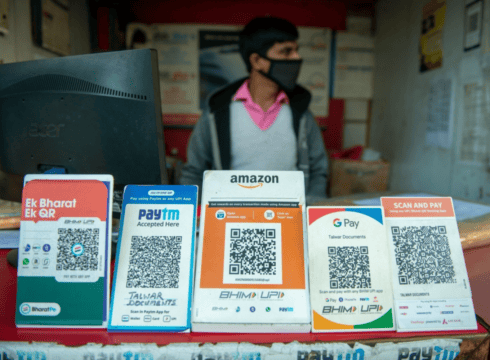NPCI has extended the deadline for implementing a 30% cap on the market share of third-party app providers (TPAPs), such as PhonePe and Google Pay, by another two years
This is the second such extension for the market cap deadline. Initially introduced in November 2020 to prevent market dominance by any single player
NPCI has also lifted the cap on user onboarding for WhatsApp Pay
Inc42 Daily Brief
Stay Ahead With Daily News & Analysis on India’s Tech & Startup Economy
The National Payments Corporation of India (NPCI) has extended the deadline for implementing a 30% cap on the market share of third-party app providers (TPAPs), such as PhonePe and Google Pay, by another two years.
“Considering various factors, the timeline for compliance of existing TPAPs who are exceeding the volume cap is extended by two years, i.e. till December 31, 2016,” the NPCI said in a circular.
This is the second such extension for the market cap deadline. Initially introduced in November 2020 to prevent market dominance by any single player, the NPCI plans to cap the market share of TPAPs to 30%. While the proposal had an initial deadline of December 31, 2022, it was later extended to December 31, 2024.
The move will come as a relief for PhonePe and Google Pay, who continue to dominate the UPI payments landscape and currently have more than 30% market share each.
Earlier this year, it was reported that implementation of the 30% market share cap on UPI apps was unlikely to come into effect.
Meanwhile, in a move that would increase the competition for the leading UPI players, the NPCI has lifted the cap on user onboarding for WhatsApp Pay. This will allow the Meta-owned platform to offer UPI services to its entire user base in India.
Previously, WhatsApp Pay was allowed to onboard users in phases. With the removal of this restriction, WhatsApp Pay can now scale its services without limits while continuing to comply with all existing UPI regulations and TPAP guidelines.
The developments come at a time when UPI transactions continue to scale. The number of UPI transactions jumped 37% year-on-year to 15.48 Bn in November.
Meanwhile, the regulatory push to further expand UPI transactions continues unabated. While India is in talks with a number of countries to allow UPI payments, the central bank has also been taking a number of steps to give further impetus to the digital payments ecosystem.
Recently, the Reserve Bank of India (RBI) allowed fully KYC-compliant prepaid wallets to make UPI payments through third-party apps.
{{#name}}{{name}}{{/name}}{{^name}}-{{/name}}
{{#description}}{{description}}...{{/description}}{{^description}}-{{/description}}
Note: We at Inc42 take our ethics very seriously. More information about it can be found here.


